ORDA speaks with Head of Department for Combating Organized Crime
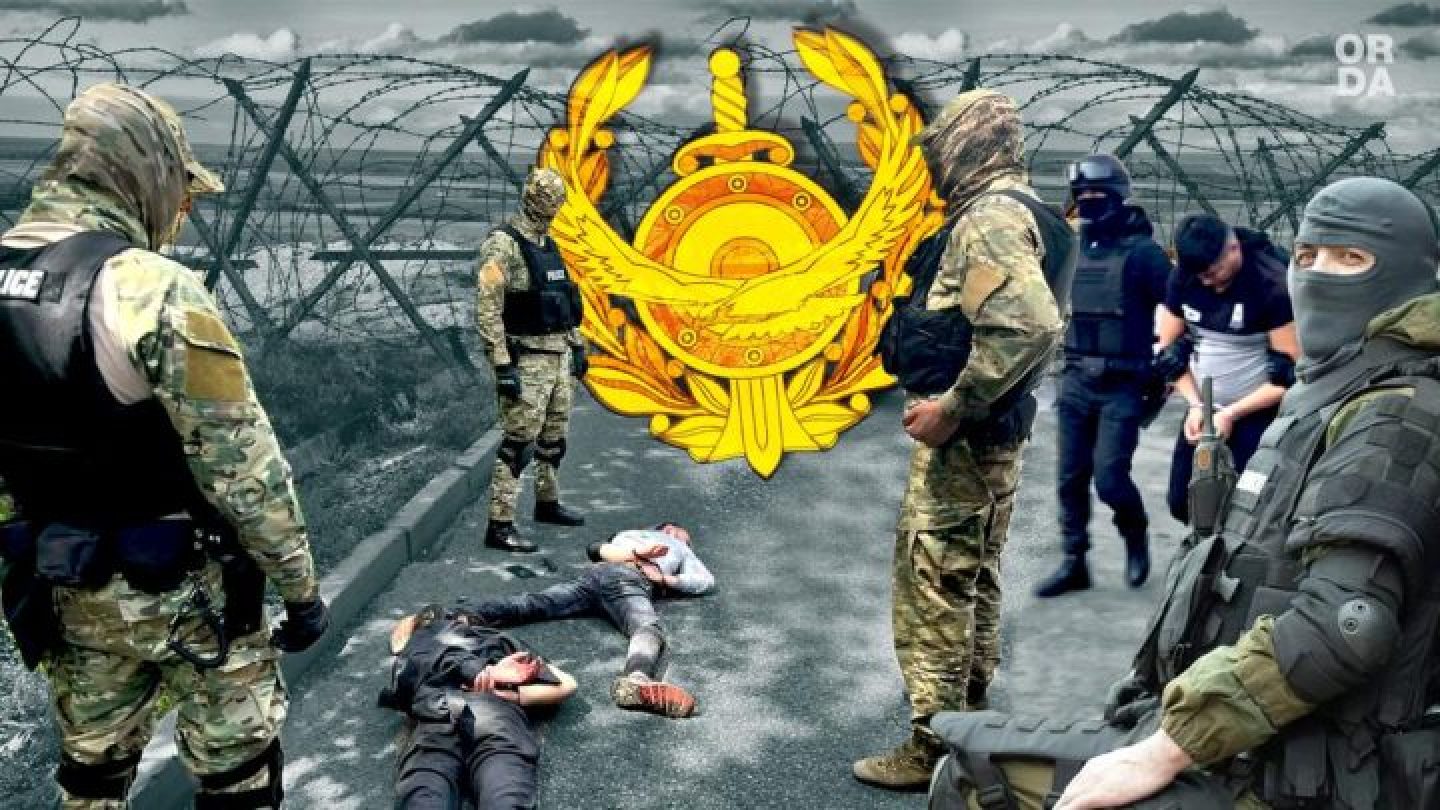 Orda
Orda
Orda.kz looked into why Georgian and Russian thieves-in-law no longer occupy the thrown among Kazakhstani criminal authorities and how police officers fight organized crime in our country.
"The leader of the Kyrgyz organized criminal group, nicknamed Kamcha, did not facilitate the escape of the former head of the Almaty region Police Department Serik Kudebayev to Türkiye. Russian criminal authorities are not evading mobilization in Kazakhstan. Azerbaijani and Georgian thieves in law have no influence on the territory of our country, as we stop all their attempts to establish their power here,”
Kanat Nurmagambetov, head of the Department for Combating Organized Crime (DCOC) of Kazakhstan’s Ministry of Internal Affairs, said in an interview with Orda.
Kanat thereby refuted sensational reports by some media outlets about the involvement of the Kyrgyz criminal authority in General Kudebayev’s fleeing in March 2023 and the increase of the Caucasian and Russian crime lords’ influence on Kazakhstani criminal entities. The police colonel urged journalists and bloggers to check the accuracy of information before publishing and not fall for cheap semantics.
Kanat Nurmagambetov also acknowledges the existing problems in his department. For example, the recent intensification of youth criminal groups' activities, the difficulties with the extradition of internationally wanted members of organized criminal groups and the understaffing of DCOC’s regional units.
Orda found out how the DCOC manages to combat organized crime and monitor its own ranks.
New-old Division of the Ministry of Internal Affairs
In 1997, departments for combating organized crime were formed within the structure of the Ministry of Internal Affairs (DCOC – Ed.). These were large operational units in terms of personnel, which were present in every city and regional police department. They proved to be effective from the get-go, making serving in the DCOC prestigious.
However, a series of high-profile corruption scandals related to the protection of criminals have rocked the DCOC since 2015, tarnishing the image of law enforcement agencies.
In November 2018, the DCOCs were disbanded due to "the irrelevance of their maintenance." Interior Minister Yerlan Turgumbayev later said that since there is no longer rampant organized crime in the country, it makes no sense to maintain numerous DCOCs. They can easily be replaced locally by compact departments and divisions.
Time has shown that the decision to eliminate the DCOC was premature and erroneous, as the criminal syndicates in Kazakhstan have gone nowhere. They have simply taken on other forms and begun to act less brazenly and openly than in the 90s. The problem was that the small departments for combating organized crime could barely handle the load because they lacked the necessary manpower and instruments. From this arose the need to create a new department within the Ministry of Internal Affairs, which would coordinate their work.
"On July 5, 2022, on behalf of the head of state, by order of the Minister of Internal Affairs, our department for combating organized crime was formed. We are an independent operational unit and report to the head of the Ministry of Internal Affairs and his deputy. There are over 100 employees in the staff of the anti-organized crime units, I can't tell you the exact figure, as this is classified information,"
Nurmagambetov says.
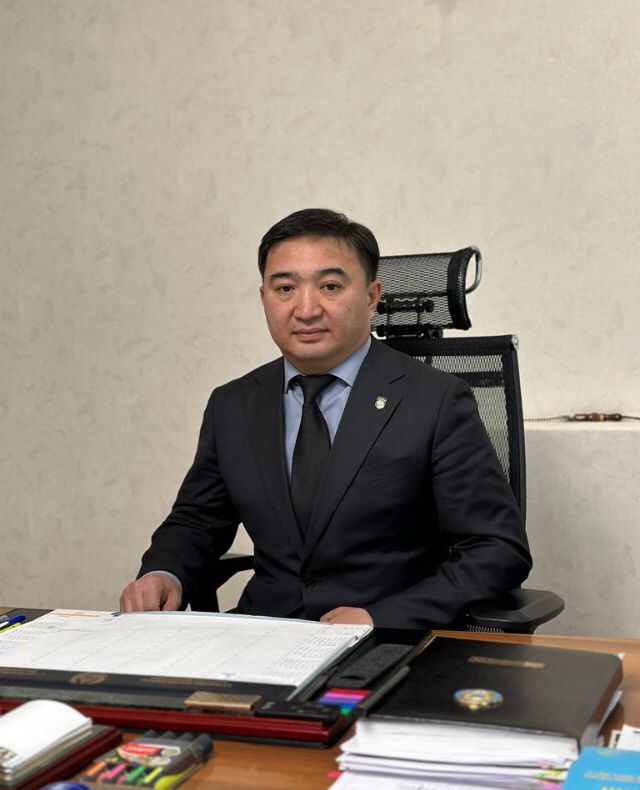
This DCOC has been in existence for less than a year. It is too early to measure its personnel’s effectiveness. One can only ballpark with data provided by the Ministry of Internal Affairs. And they say that in 2022, 36 criminal cases were initiated against criminal communities, while 155 active members of groups and 24 leaders faced criminal responsibility. 15 wanted members of an organized criminal group were detained.
"DCOC has an excellent material and technical base, a good salary and a social package, so there is no need to complain. This, in turn, minimizes corruption risks: since all the conditions for work have been created, what is the reason for our employees to break the law? All our efforts are aimed at combating organized crime in all its manifestations,"
Nurmagambetov said.
The colonel said that the DCOC focuses on the fight against pimping, pornography, extortion, trafficking and kidnapping, as well as the criminal authorities’ formation and development. Success is notable in each aspect.
"At the beginning of January 2023, together with the KNB, as well as Russian law enforcement officers, we conducted a special operation in Baikonur to detain 18 members of a transnational organized crime group. They specialized in extortion and kidnapping for ransom and operated for two years. The main backbone of the criminal group were citizens of Kazakhstan, some of them had previous convictions. The ringleader was a Russian criminal authority, also convicted. The investigation into the case of this organized criminal group is still ongoing,"
the speaker said.
Our interlocutor also spoke about another organized criminal group’s neutralization in March 2023. At that time, 40 people were detained in the Karaganda region on suspicion of large-scale theft of metal from the ArcelorMittal Temirtau enterprise. Among them were the enterprise’s security officers. DCOC got on the trail of the gang after a clash occurred between its members over the division of profits. One instance ended in a shootout. DCOC officers later began to look into the reasons behind it. They were able to reveal the organized criminal group secretly stealing raw materials from the metallurgical plant.
"We also detained in Taraz, Kokshetau and Kyzylorda members of youth groups who imposed their patronage on local security structures that ensure the safety of nightclubs and other entertainment establishments. They themselves wanted to control the work of these institutions, so the redistribution of spheres of influence with armed showdowns also began between criminals. During the arrest and search of the suspects' homes, we seized weapons – traumatic, firearms and cold. I would like to note that earlier youth groups were not distinguished by such aggressiveness and activity as they are now,"
the lawenforcment officer stressed.
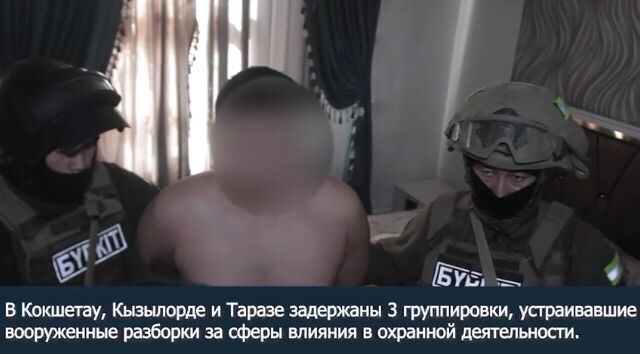
The DCOC also takes pride in its thwarting of contract murder in Astana in March 2023. A resident of the capital decided not to repay a debt of 500 thousand dollars to his relative. He made contact through his friend with a previously convicted person who agreed to act as an assassin. According to the colonel, the DCOC operatives learned from their informants about the impending crime and detained the perpetrator:
"He started cooperating with us and listed the names of the organizer and the customer of the murder. To catch the customer red-handed, we asked the victim, a 57-year-old woman, to play along with us. Of course, she was shocked to learn that a relative she trusted wanted to kill her. We made it look like the woman died, photographed her, and the killer showed the picture to the customer as the supposed confirmation of completing the job. As soon as he paid, we immediately detained him."
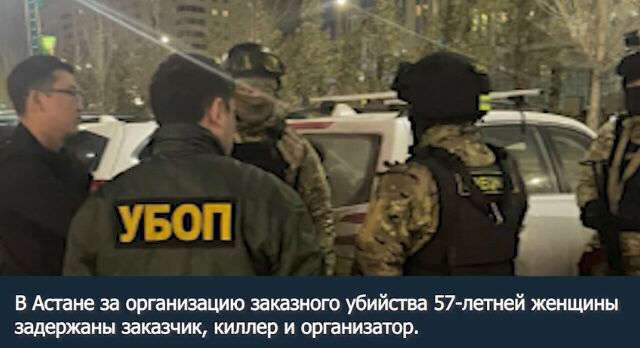
Legislative Gaps and Initiatives
No matter how the head of the DCOC praised the work of his subordinates, critical questions were unavoidable. Indeed, human rights defenders, lawyers and public figures have frequently expressed dissatisfaction with the police.
The first one is connected with the absence of the Law "On Organized Crime and Racketeering" in Kazakhstan. Such a law has been in force in Georgia since 2005. Its uniqueness lies in the fact that the terms "thief-in-law", "thieves' showdown", and "thieves' gathering" are officially spelt out. It also provides for the possibility of arrest and conviction for membership in a criminal community alone. If a detainee, for example, introduces himself: "I, Vakha, am a thief-in-law!", he automatically falls under a criminal article.
There is no explanation for the term "thieves' community" in Kazakhstan's regulatory legal acts, not to mention other definitions. Our law enforcement officers need to collect strong evidence that a suspect is an active participant or leader in a criminal community. Then the court must find him guilty under Article 263 of the Criminal Code of the Republic of Kazakhstan ("Creation and leadership of a criminal community, as well as participation in it").
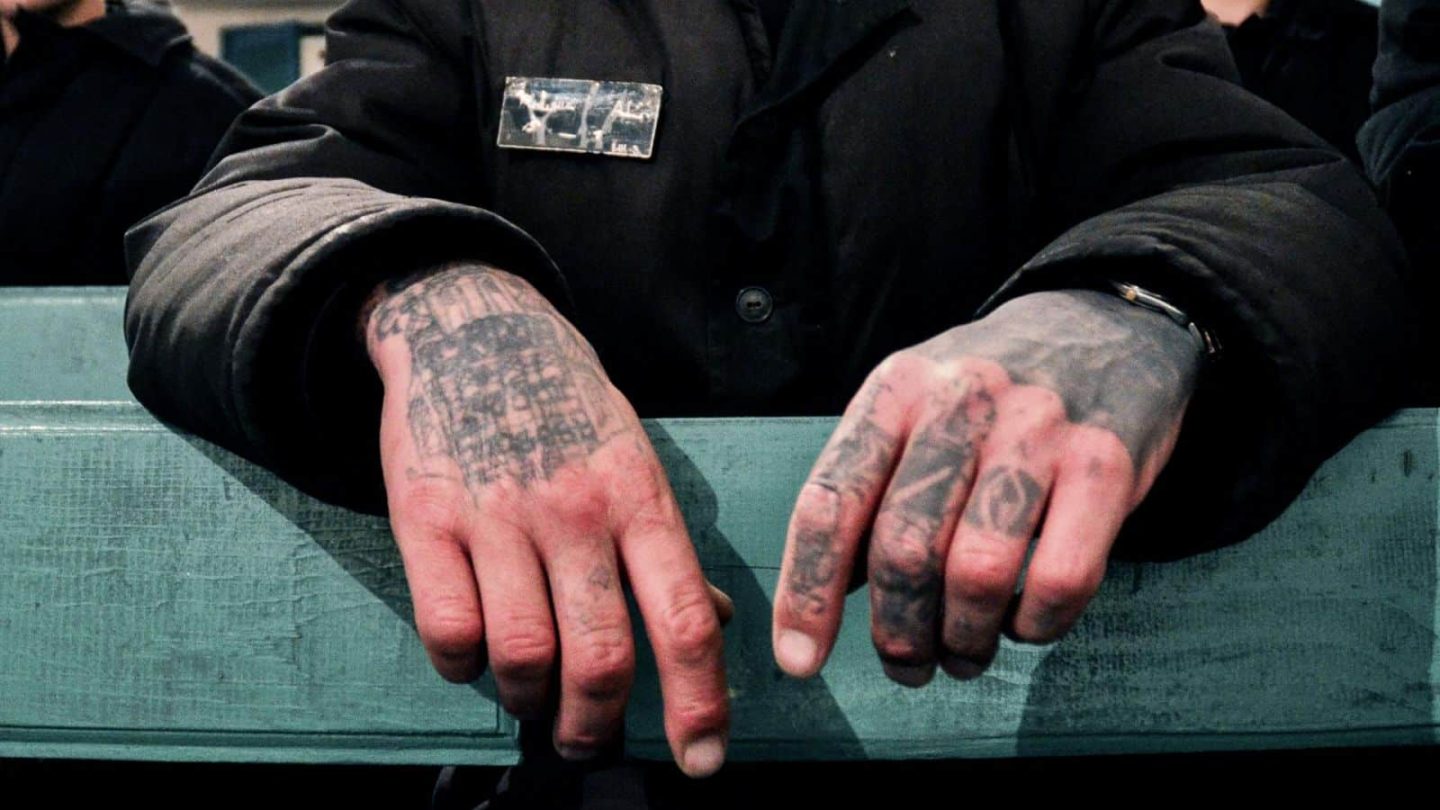
Another difference between Kazakhstani and Georgian legislation is property confiscation. In Georgia, by a court verdict, property is taken away, not only personally belonging to a thief-in-law, but also to their closest relatives – wife, children, parents, brothers, sisters, stepdaughters and stepsons (The Law "On Organized Crime and Racketeering" gives a clear definition of who are the closest relatives of the leader or member of a thieves' community – Ed.). Georgian law enforcement does not need to prove that the apartment, house, land plot and luxury items of the thief-in-law or his family members were acquired by criminal means.
In Kazakhstan, the court can confiscate only the property that directly belongs to the leader or an active member of an organized criminal group. And then law enforcement officers need to prove during the investigation that it was obtained illegally. The catch is that such property is not registered under criminals’ names. Expensive real estate, executive-class cars, bank accounts and companies are registered under their relatives' names.
So why does Kazakhstan not adopt the Law "On Organized Crime and Racketeering" like Georgia? It would also facilitate law enforcement officers’ work.
“I believe that there is no need to adopt such a law in Kazakhstan, as we do not have as acute a problem with organized crime as in some countries. In addition, the Georgian law is aimed specifically at combating thieves in law, as they have many such citizens there. We have only two thieves-in-law in Kazakhstan – these are Serik Golova and Lech Maymysh. One is currently serving a sentence for extortion in Kazakhstan, the other is doing time for drug trafficking in Russia,"
Nurmagambetov says.
There is also no ban on propaganda of prison subculture in Kazakhstan, unlike in Russia, where it has been in effect since August 2020. Three years ago, the Supreme Court of the Russian Federation decided to recognize the international public movement "Convict Criminal Unity" (CCU – Ed.) as an extremist organization. Now any activity related to CCU is prohibited on Russian territory.
In Kazakhstan, representatives of the CCU can propagate thieves and prison concepts among minors using the Internet and even advertise joining their community to young people. Why?
"I believe that there is no problem in Kazakhstan with the promotion of prison subculture, so there is no need to adopt a ban on CCU’s activities. If the channels of former inmates are popular in the Russian segment of the Internet, who speak about how and for what they were imprisoned, what unwritten rules and traditions of the criminal world exist in the colonies, then there is no such thing in our country. Somehow, it is not customary for us to expose the specifics of imprisonment to the whole world, I do not even know a single site that would specialize in the topic of the zone. But if one suddenly appears, we will take care of blocking it, as it is clearly destructive!"
says Kanat Nurmagambetov.
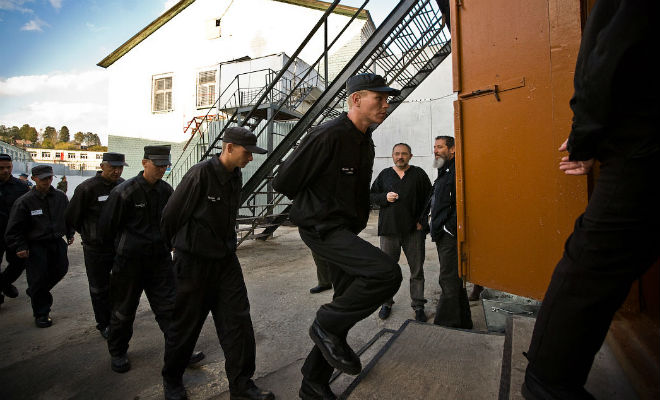
Another urgent and topical issue is the adoption of a law on combating human trafficking. How many citizens of Kazakhstan are fraudulently exported abroad every year, promising them a decent salary and good housing conditions, but in fact forcing them to work for pennies and live in cramped dorm rooms? How much slave labor of people without documents and own housing is used in our fields, private farmsteads and pastures? This is not to mention the illegal migrant workers from neighboring Central Asian countries, working on construction sites. In all these cases, people are mistreated, and they can only turn to human rights defenders and journalists for help. What is the Ministry of Internal Affairs doing to solve this problem?
"In 2022, the Ministry of Internal Affairs, on behalf of the President, developed a draft law "On combating human trafficking." In it, we have combined the efforts and powers of all interested state agencies: the Ministry of Internal Affairs, the Ministry of Labor and Social Protection, the Ministry of Health, the Ministry of Education and the Prosecutor General's Office, as the police (cannot - Ed.) handle it alone. You see, before government agencies acted separately, according to departmental instructions and regulations, so the results of their work left much to be desired. If the deputies adopt the law "On combating human trafficking", then it will be easier for all of us. I would also like to add that DCOC carries out purposeful work to stop the channels of our citizens being trafficed abroad for the purpose of exploitation and successfully cooperates with the Ministry of Labor and Social Protection of the Population to assist victims of human trafficking,"
Nurmagambetov says.
Original Author: Zhanar Kusanova
DISCLAIMER: This is a translated piece. The text has been modified, the content is the same. Please refer to the original article in Russian for accuracy.
Latest news
- Kazakhstan Lifts Gallium Export Duty
- Chinese Firm Proposes to Fund New Port and Logistics Hub in Mangystau Region
- ForteBank Stock Soars on Home Credit Deal, Then Plunges 30% in a Day
- Coins Believed to Be Tied to Kairat Satybaldyulyuly to Be Auctioned
- Ukraine’s Military Intelligence Chief Says Ceasefire Should Come Before Year’s End
- Kyrgyz Citizen Fined in Kazakhstan for Carrying Banned Book Across Border
- Trial of Former Financial Police Officers in Khorgos Case No. 1 Closed to Public Over State Secrets
- Kazakhstan to Ban Outdoor Currency Rate Displays at Exchange Offices Starting September
- Armenian Court Orders One-Month Detention for Tashir Pizza Executive Amid Ongoing Investigation
- Kazakhstan May Require Banks to Offer Deferrals to Socially Vulnerable Borrowers
- Almaty Utility Pursues Debt Collection for Unpaid Heating and Hot Water Bills
- Kazakhstan and Afghanistan Sign Railway Memorandum
- Kazakhstan's National Bank Keeps Interest Rate at 16.5%, No Cuts Expected Until 2026
- Vyacheslav Kim Finalizes Purchase of Alatau City Bank
- Wild Arman Associate Detained in UAE Over Alleged Role in Qantar Riots
- Ulytau Region Akim Sues Woman for 495,000 Tenge Over TikTok Video
- Ukrainian Entrepreneurs Move to Buy BTA Bank from Kazakh Businessman Kenes Rakishev
- Kazakhstan’s Foreign Debt Hits 170.5 Billion USD in Q1 2025
- Regulator Flags Pricing Issues in Yandex Go Audit, Company Ordered to Adjust Policies
- Azattyq Prepares Lawsuit Against Kazakh Foreign Ministry Over Denied Press Accreditations

